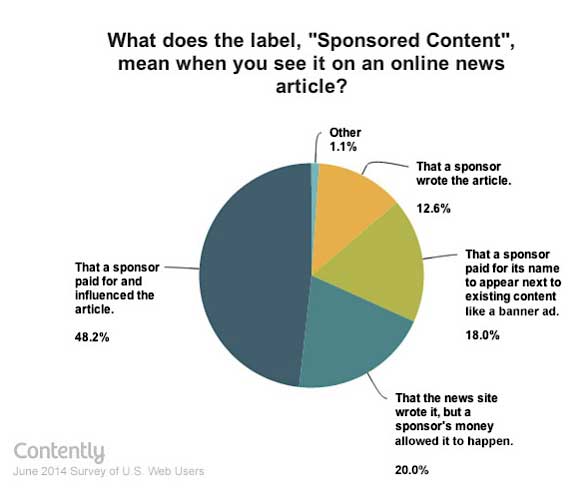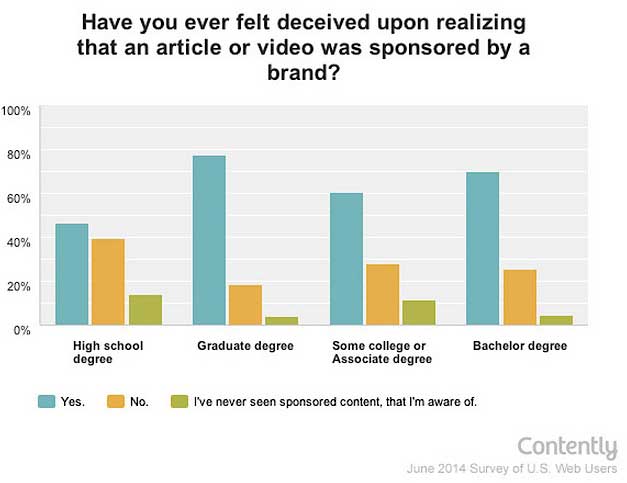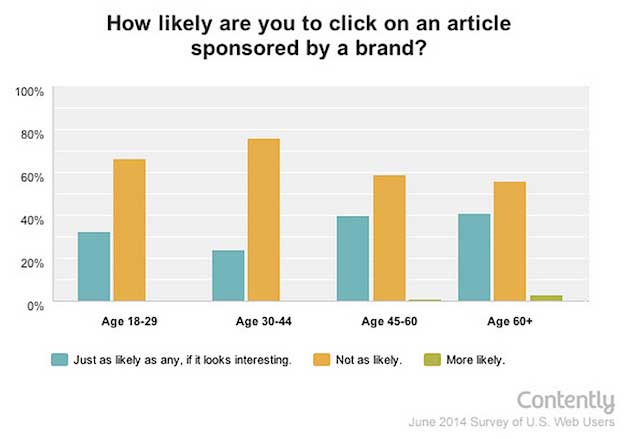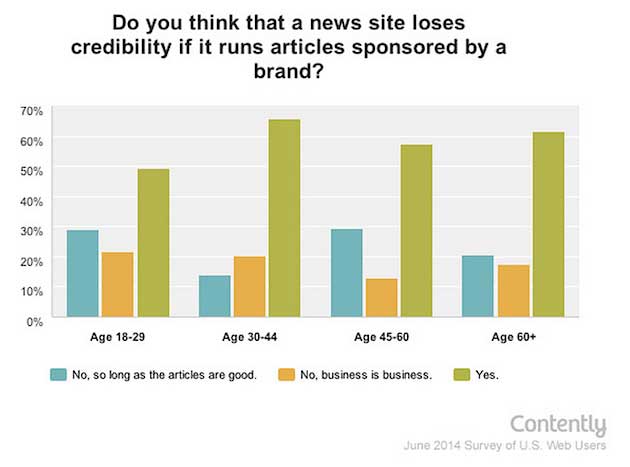Most consumers (54%) say they do not trust pieces labeled "sponsored content" on online news websites, according to a recent report from Contently.
Moreover, consumers are unsure about what the "sponsored content" label actually means: 48% of US adults surveyed believe it indicates that an advertiser paid for an article to be created and had influence on the content; 20% think it means the site wrote the content but the sponsor's money enabled it to happen; 18% believe the advertiser just paid for their name to appear; and 13% think the label indicates that the sponsor wrote the content.

Below, additional key findings from the report, which was based on data from a survey of 542 Internet users in the United States age 18-65.
Feeling Deceived
- 67% of respondents say they have felt deceived after realizing that an article or video was sponsored by a brand.
- Consumers with higher levels of education are more likely to have felt tricked by sponsored content: 77% of respondents with a graduate degree reported having felt deceived compared with just 46% of respondents with a high school diploma.

Likelihood to Click
- 66% of respondents say they are less likely to click on an article sponsored by a brand compared with regular site editorial content.
- Respondents with college degrees report they are less likely to click on sponsored content than those with only high school diplomas.
- Younger consumers also say they are less likely to click on sponsored content than older respondents.

Credibility
- 59% of respondents say that news sites lose credibility when they run articles sponsored by brands.
- Millennials are more lenient, with only 49% of respondents age 18-29 saying that a news site loses credibility if it runs sponsored content.

About the research: The report was based on data from a survey conducted in June of 542 Internet users in the United States age 18-65.




